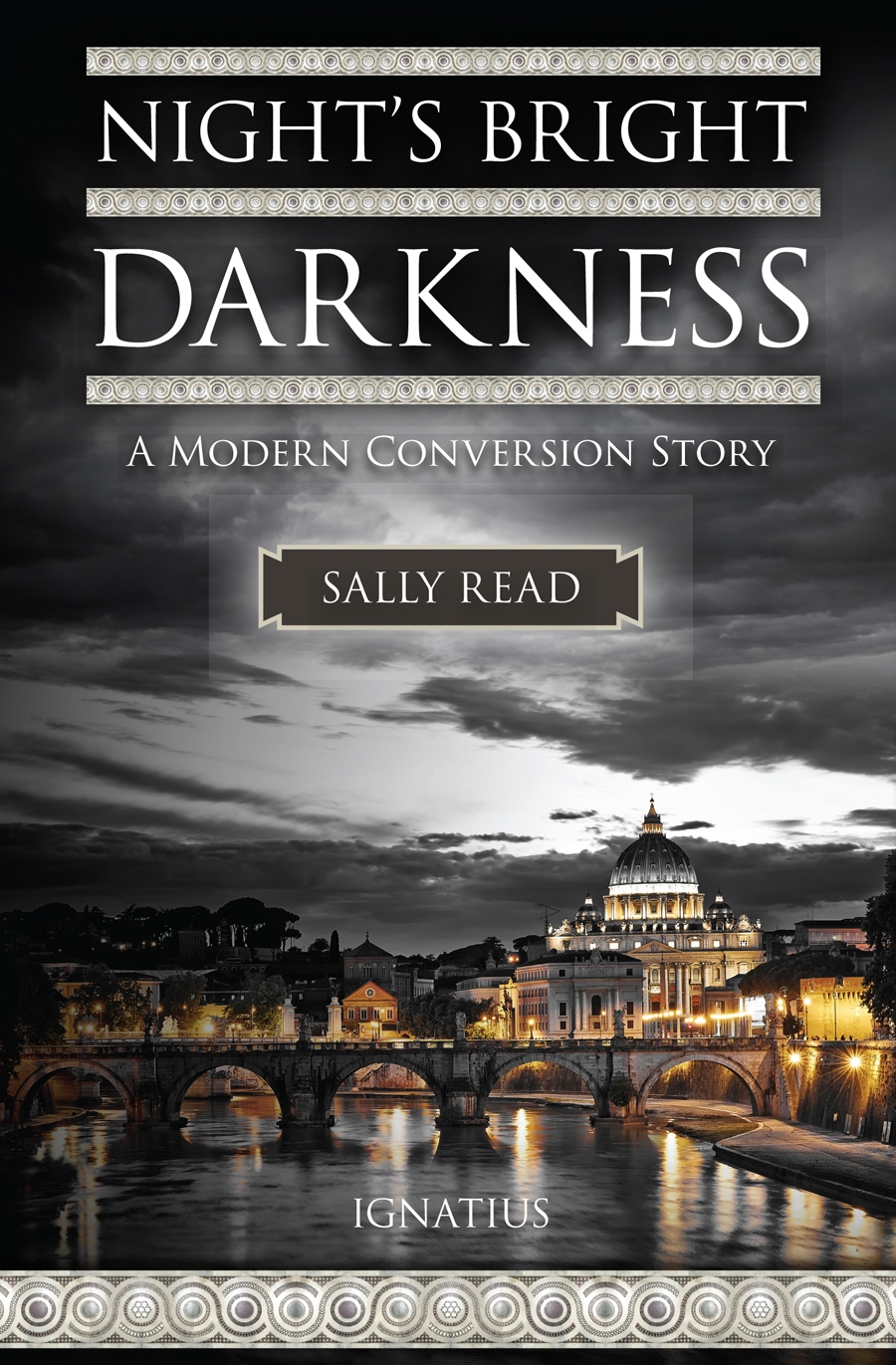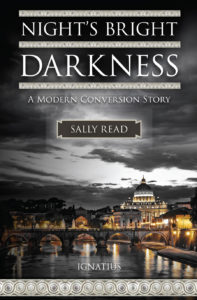The beauty of conversion stories is that they always allow us hope. We read of non-Catholics and even atheists who take that journey to the land of Faith that the rest of us generally take for granted.
With a delightfully double-oxymoronic title, “Night’s Bright Darkness,” and a most appropriate writer’s name, Sally Read, we read — pun completely intended — of just such a journey. Read is a poet and so this particular conversion story is a work of art in itself.
Author: Sally Read
Publisher: Ignatius Press
Length: 146 pages
Released: Oct. 11, 2016
Available at: Kino Library and Ignatius.com
The beginning of her story is profoundly poetic and yet visceral, as she remembers her days as a young nurse being taught how to wrap a body by an older Irish nurse. The allusion to Christ’s death is immediately overwhelming and the reverence and deeply personal way the older nurse goes about her duty is hypnotic. Its effect on Read is palatable, even as an atheist.
Then there is Carlos, a man who had a stroke and was not able to communicate. The doctors and family argue whether or not to continue life support, but because Read shaved and washed him daily, she witnessed the life in his eyes and how he looked at her, pleading for that life. When they decide to remove the feeding tube, allowing Carlos to starve to death, Read is again shaken.
Her hard-core atheist father dies after a brief illness but he spends his last days planning specifically for his funeral, completely disdaining religion. Read is again struck when some of her friends ask how an atheist can mourn loss and she had no answers. This dissonance stays with her for many, many years.
She marries an Italian police officer and eventually makes it to Rome where, naturally, the odds are stacked against her: nearly everyone around her is, at least culturally, Catholic; there are ancient and ornate chapels everywhere; a priest — always a priest — is there as a confidant; and the splendor of the Vatican itself is ever-present.
She expresses the weight of the massive, growing hole in her existence to her friends and the priest but she finds it strange that none of them try to steer her toward religious expression, they merely provide presence, the most potent of cures, and Read becomes aware of something else, something common among these Catholics. They answer her questions, they support her, but they never push.
As she moves through the day-to-day of her life, caring for her young daughter and her husband, the collision of worlds begins in earnest. How does an atheist mourn loss? How does a Catholic mourn loss? Where does the joy of these people come from?
Sally Read rages, angry by some Church teachings and the abuse scandals that rise up all around the world. She challenges the priest on the abuse scandal, on how the Church is prejudiced against women, on how it forbids same-sex marriage, contraception and abortion, all reasonable things to her. But the priest won’t fight, he simply answers her questions with the profound wisdom of the Magisterium.
She tries to read the Catechism but it reminds her of Nazi totalitarianism and she fills up her list of “I can’t be Catholic because …”. However, one by one her excuses fail her and the dark night continues to descend upon her soul.
And yet there is the Presence.
She and her daughter take a short summer holiday to London and the noise, loneliness and muscular secularism of the place shock her. She visits old friends and finds them all profoundly different than they had been, not realizing that the difference is within. The realization of the change in her amid all that chaos she embraced so many years ago finally breaks her. She sits down on a curb and realizes that she is already Catholic.
She returns to Rome, resuming her life with this newfound magnificence, and still she fights, albeit with little resolve. Sally Read’s priest friend, who is away in Canada for some work, receives an email from her stating that she has decided to take the leap, that the hunger for Christ is just too great, and she cannot take it anymore.
Leave it to a poet to turn a simple little conversion into a universe-shattering tumult, but sometimes Christ needs to lean a little on a person. This book is magnificent, poetic, visceral and yet wholly readable.








